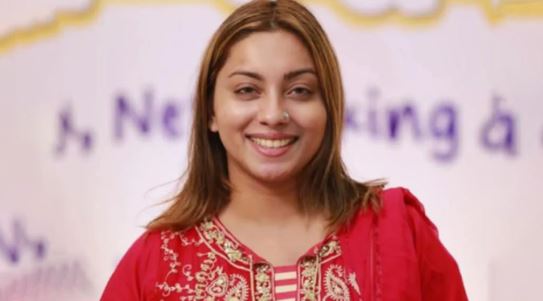A growing number of public intellectuals, media professionals, and rights advocates in Bangladesh and abroad have voiced strong criticism on social media following the “controversial detention” of model and actress Meghna Alam in connection with a dispute reportedly involving the Saudi Ambassador in Dhaka.
Meghna, who was picked up from her residence by law enforcement officials on Thursday night and later placed under a 30-day detention order under the Special Powers Act, has become a focal point of intense debate online.
She was crowned Miss Earth Bangladesh in 2020, making her the inaugural titleholder of the Miss Earth Bangladesh pageant.
While police claimed she was taken into “protective custody” based on a complaint by an official at the Saudi Embassy, many prominent voices questioned the legal basis and transparency of the move.
Award-winning investigative journalist David Bergman condemned the arrest, terming it a “chilling reminder” of the state’s subservience to foreign diplomatic pressure.
Tasneem Khalil, editor of Netra News, called the incident “a grotesque violation of due process” and raised concerns over the arbitrary use of state machinery to silence individuals in diplomatic disputes.
Celebrated filmmaker Ashfaque Nipun, actress and activist Ritu Sattar, and television personality Abdun Noor Tushar also expressed outrage over what they described as an “alarming precedent” where “allegations by a foreign official can override domestic legal protocols.”
Nipun wrote in Facebook that the way Meghna Alam was forcibly taken and sent to custody bears little difference from the 2020 incidents involving the forced disappearance and arrest of cartoonist Kishore and writer Mushtaq.
“These so-called special powers acts often come as a blessing for the privileged few, but bring fear and oppression for ordinary citizens,” he said demanding an immediate repeal of such special laws crafted to serve the powerful.
Nipun said: Meghna Alam must be released. If she is indeed involved in any criminal activity, the matter should be dealt with through the regular legal process. We want a state and judicial system that upholds accountability—not one that breaks doors, spreads fear, and silences voices.
“From Nawshaba to Meghna Alam — the Awami League seems to have a real fondness for the Cyber Security Act and the Special Powers Act of 1974, doesn’t it? All of this is just fine — except, perhaps, the Constitution…?” wrote Abdun Noor Tushar.
Veteran journalist Humayun Kabir Bhuiyan wrote on Facebook that the incident “reflects a breakdown in constitutional safeguards,” while academic and commentator Mubashar Hasan called for Meghna’s immediate release and an independent investigation into the allegations.
Journalist and human rights activist Samia Rahman Preema described the arrest as a “misuse of law for diplomatic appeasement,” and Jahanara Parveen, another journalist, questioned the secrecy surrounding the complaint lodged by the Saudi official.
Sources say that the incident relates to Meghna’s alleged public remarks about the Saudi ambassador, though no formal charges have been made public. The Dhaka Metropolitan Police, in a brief statement, claimed Meghna had engaged in activities “harmful to public security and international relations,” but refrained from elaborating.
Despite the police claims, critics argue the state has acted disproportionately and without transparency, and that such detentions erode trust in the rule of law.
Calls are now growing for Meghna Alam’s immediate release and for accountability on the part of those who facilitated her arrest without a clear legal mandate. Rights groups are reportedly monitoring the situation, and legal aid organisations are preparing to challenge the detention order in court.


